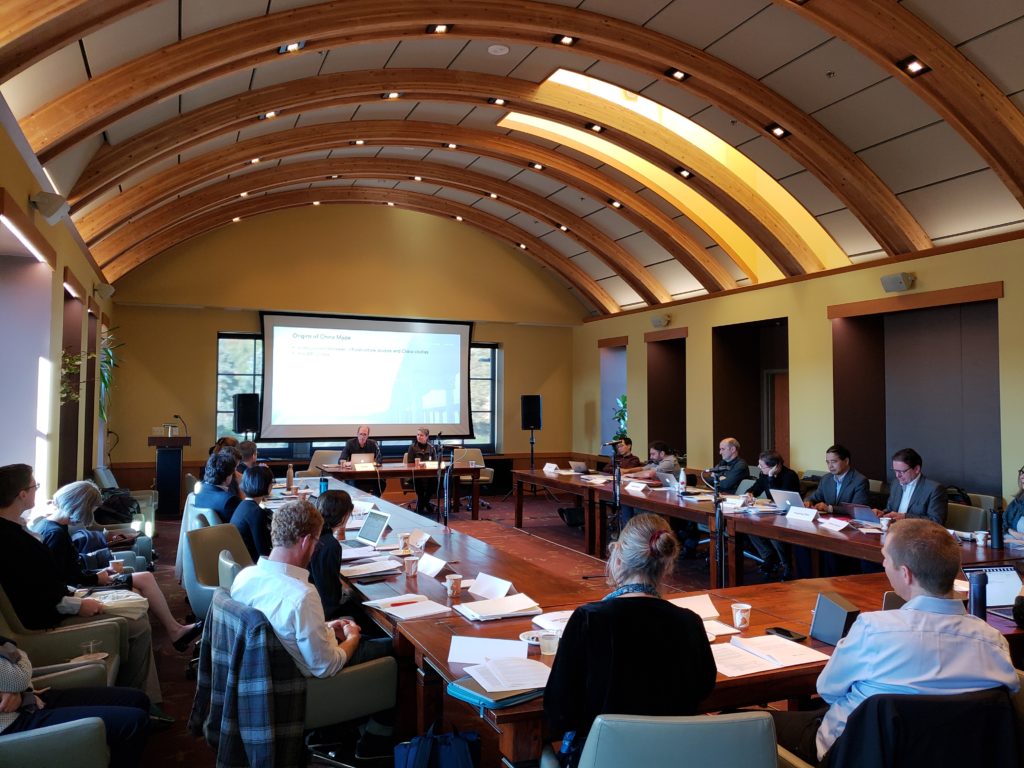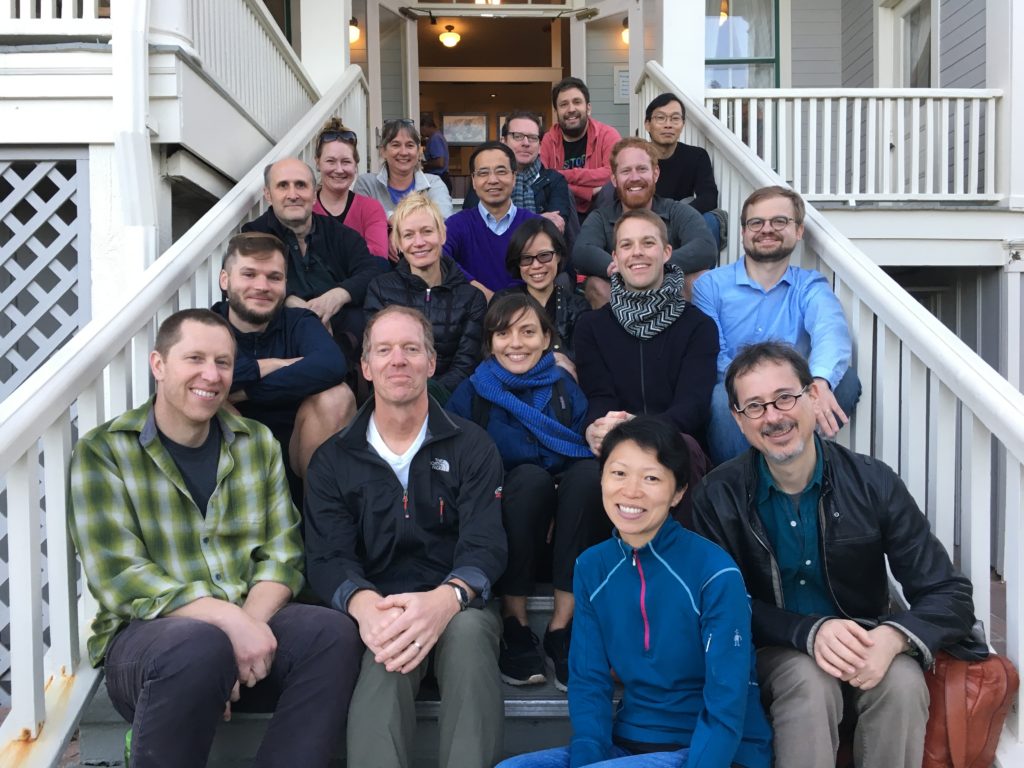
By Alessandro Rippa
In 2015, a mind-blowing statistic made the rounds of all major news outlets: China used more cement between 2011 and 2013 than the United States had in the entire 20th century. While astounding, the news was hardly surprising. During the previous two decades China watchers and the general public alike had become accustomed to the country’s flamboyant infrastructure projects. The Three Gorges Dam, Beijing’s Olympic stadium, the world’s longest high-speed railway network, the longest sea crossing … the list goes on. As Jonathan Bach puts it: “In our present era, China stands out as the paradigmatic infrastructural state: a state produced by and through infrastructure as a modern project.”
At the same time, in academia, recent years have seen a proliferation of social science studies of infrastructure. “Infrastructure” became a recurrent theme of debates at disciplinary conferences and workshops, leading to some scholars wondering whether we should be talking of an “infrastructural turn” in the social sciences today.
It was against this backdrop that on October 17-19, the Center for Asian Studies of the University of Colorado Boulder convened a workshop titled Conceiving Infrastructures in a Chinese Register. The first of three workshops planned under a Henry Luce Foundation-funded initiative titled “China Made: Asian Infrastructures and the ‘China Model’ of Development,” this international symposium sought to develop a theoretical and methodological agenda for bringing infrastructure studies into conversation with China’s domestic and export infrastructures. To this end, the workshop brought together 22 scholars doing research in China, as well as scholars who have been engaging with infrastructure in other Asian contexts. The goal was to sharpen questions and methods of analysis for further investigations of the conceptual-empirical registers of China’s infrastructural development.
The themes highlighted by the various participants—including the socialist history of the Chinese “zone,” the need to understand infrastructure as both sites and network, the critical aspect of temporality and material decay, and the often-missing question of gender in infrastructure studies—revealed the complexity of infrastructure as social, material, and discursive. Speakers also explored how infrastructure seems to have an “intrusive” agency: the infrastructure that surrounds us, from roads and railways to internet networks and mobile phones, are both external and embodied in unique ways. Internet technology and surveillance infrastructure, in particular, were highlighted as major components of contemporary life in China that are often missing from broader debates on the subject.
One of the key insights of the workshop was the need to approach infrastructure as both object and method. As particular objects of inquiry, infrastructures represent an ideal point of entry from which to observe and analyze broader socio-political processes. Methodologically, they force us to think across scale without losing sight of the material components of which they are made.

From this perspective, as professor Tim Oakes noted, China’s political system can be seen as an infrastructure machine: an apparatus that lends itself to the development and construction of infrastructure. Certainly, the massive projects outlined above, the consideration that almost half of China’s total investment goes towards infrastructure, and the current push to export a Chinese model of development through the Belt and Road Initiative, make this argument worthy of further exploration.
A full exploration of these themes surely demands a trans-disciplinary mindset and methodological approach. Hence, the first China Made workshop brought together historians of technology, landscape architects, human geographers, and social anthropologists. The workshop featured an opening session with contributions from Andrew Barry (University College London) on the theme of infrastructure studies, and Tong Lam (University of Toronto Mississauga) on China’s development trajectory. Four panel discussions ensued around four major themes: temporalities; spatialities; states; and the everyday. Each panel highlighted particular tensions: between the ruins of past infrastructure and the promises embedded in new ones, between state-centered development and neoliberal globalization, between the urban and the rural, and between Chinese and non-Chinese infrastructure.
The workshop also featured a casual hike through the Chautauqua Park and two dinners in Boulder’s scenic surroundings. During these latter portions of the workshop, participants informally engaged in discussion about their respective interests and research related to the workshop.
The workshop was organized by Tim Oakes (University of Colorado Boulder), Dorothy Tang (Massachusetts Institute of Technology and University of Hong Kong), Max Hirsh (University of Hong Kong), and Emily Yeh (University of Colorado Boulder), with assistance from Yaffa Truelove and Alessandro Rippa (both University of Colorado Boulder).
The website of the China Made project will feature short versions of the papers discussed during the workshop, as well as video interviews with some of the participants. The organizers will also publish some of the key theoretical and methodological findings in a forthcoming paper in a disciplinary journal. As part of the China Made project, two more workshops will be held in 2019 and 2020, one focusing on domestic infrastructure and one focusing on Chinese infrastructure development in Southeast Asia. For more information on upcoming events and publications, please visit the China Made website.
Participants: Jonathan Bach (The New School), Andrew Barry (University College London), Mike Dwyer (University of Colorado Boulder), Andrew Grant (University of Colorado Boulder), Gökçe Günel (University of Arizona), Tong Lam (University of Toronto), Suzanne Moon (University of Oklahoma), Galen Murton (James Madison University), Pal Nyiri (Vrije University), Katharine Rankin (University of Toronto), Alessandro Rippa (University of Colorado Boulder), Christina Schwenkel (University of California Riverside), Rachel Silvery (University of Toronto), Edward Simpson (School of Oriental and African Studies, University of London), Hallam Stevens (Nanyang Technological University), Yaffa Truelove (University of Colorado Boulder), Amy Zhang (New York University), Yongming Zhou (University of Wisconsin Madison and Southern University of Science and Technology Shenzhen).
Alessandro Rippa is a postdoctoral fellow at the University of Colorado Boulder Center for Asian Studies and a senior editor at The South Asianist. He tweets at @AlessandroRippa.

